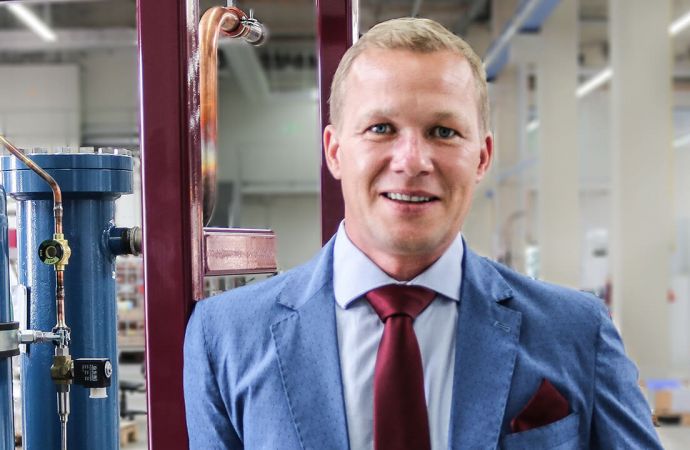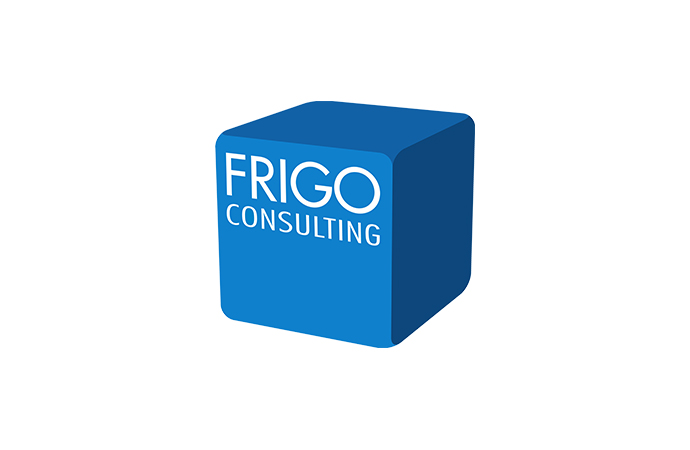Charting a course beyond the Carpathians, European food retail giant the Transgourmet Group sees natural refrigerant technology playing a central role in delivering its goal of becoming CO2 neutral by 2023.
_1475588095.png)
“We have been set a target by our shareholders. We have to be CO2 neutral by 2023, across the whole Transgourmet Group,” Hans-Dieter Bruss, vice-president in the group’s Central and Eastern European arm, told Accelerate Europe.
Based in Germany, Bruss is responsible for construction and facility management at Transgourmet Central and Eastern Europe (CEE), which operates cash & carry and wholesale stores in Germany, Poland, Romania and Russia.
With an annual turnover of €4.5 billion and 17,000 employees, Transgourmet CEE is part of the wider Transgourmet Holding AG, which also includes business divisions in France and Switzerland.
Together, Transgourmet Holding AG is the second-largest cash & carry and food service company in Europe. It is part of Coop, one of Switzerland’s largest retail and wholesale companies.
Founded in 2008 by Coop and German retail giant REWE, the Transgourmet Group – wholly owned by Coop since January 2011 – includes Fegro/Selgros, Germany’s second biggest cash & carry firm.
As well as operating supermarkets under a variety of brand names, Transgourmet is a market leader in supplying and servicing professional kitchens, hotels and company catering.
‘The target is 100% CO2’
Bruss is putting HVAC&R – and natural refrigerants in particular – at the centre of Transgourmet CEE’s strategy for delivering its sustainability targets. “The target is 100% CO2,” he says.
The group is adopting CO2 for all refrigeration, air conditioning and heating applications, not only in new and updated stores but also in distribution centres. “In every new store and every remodelled store, we’re changing from traditional cooling to CO2,” Bruss explains.
There is not yet a precise timetable in place for delivering this transition. “We’re trying to change four, five or six installations to CO2 every year.”
Parent company Coop has been working with natural refrigerants since 2000. As of 2009, all Coop’s new system installations have used CO2 as the refrigerant. Coop is committed to becoming CO2-neutral by 2023 too.
Bruss says that the Transgourmet Group’s goal is to become HFC-free “in the near future”. Currently, Transgourmet has 15 stores that use CO2 transcritical.
“Transgourmet has the ambition and target to apply CO2 technology whenever possible – for refrigeration, air conditioning and heat pumps. When we say CO2, we mean ‘full CO2’. No hybrid systems that still use HFCs,” Bruss declares.
Marcus Hoepfl, managing director of Frigo-Consulting International Ltd., a Swiss refrigeration consulting and engineering company, has been helping the Transgourmet Group to make the transition to natural refrigerants for two years now.
Bruss and Hoepfl met with Accelerate Europe at the brand new Selgros Cash & Carry store – which operates under the Transgourmet banner and boasts a sales area of 3,500m2 – in the Transylvanian town of Târgu Mureș, located just over 100km southwest of the city of Cluj-Napoca in Romania.
Selgros Cash and Carry operates 20 stores in Romania, putting it among the top five food retailers in the market. The Târgu Mureș store – which opened on 27 May – uses the natural refrigerant CO2 for refrigeration, air conditioning and heating purposes.
The store is fitted with a CO2 transcritical rack that relies on a booster system, parallel compression, and ejector technology. The concept also includes the first-ever CO2 transcritical chiller for air-conditioning with overfeed flooded evaporators.
A heat recovery system delivers hot tap water and heating for the sales and office areas. This reduces the supermarket’s carbon footprint, recycling waste heat that would otherwise be emitted to the atmosphere.
“This is quite new. It’s the first such system that we’ve done for an air conditioning application,” Hoepfl says.
Policy, efficiency, reliability, sustainability
Transgourmet opted to go down the natural refrigerants route six years ago. “Frigo-Consulting convinced us to use CO2, particularly in terms of energy efficiency and reliable operation of the systems,” Bruss says.
“But the main factors were to have a long-term solution with regard to the f-gas issue, energy efficiency, reliability and last but not least, sustainability,” he explains. “It’s easy for us, because it’s what our shareholders want.”
The CO2 booster rack – serving 127 metres of low- and medium-temperature cabinets, as well as 268m2 of cold rooms and freezers – delivers up to 145 kW of medium temperature and 44kW of low temperature cooling capacity at the Târgu Mureș store.
The system harnesses gas and liquid ejectors together with parallel compressors to recover the energy released during high-pressure expansion and to reduce internal throttling losses. Driven by the pressure difference in the refrigeration system between high and receiver pressure, the ejectors convey either liquid or gaseous refrigerant.
The first CO2 transcritical chiller for air-conditioning with overfeed flooded evaporators, meanwhile, provides air-conditioning for the entire sales and office area. The system harnesses ejectors to increase system efficiency, raising the medium suction pressure of the medium temperature range from -8 degrees Celsius up to -2 degrees Celsius.
Performing expansion in partially flooded mode “increases the properties of CO2 tremendously, this allowing the increase in the evaporation temperature,” says Hoepfl.
Thanks to the liquid separator on the suction side of the low temperature (LT) range, the evaporation temperature from the low-temperature side can be raised from -30 degrees Celsius to -26 degrees Celsius.
“All this is possible with the use of partially flooded evaporators. Energy savings reach up to 25% compared to traditional CO2 systems. We measured this for over a year in two similar installations in Switzerland,” states Hoepfl.
‘Just the beginning’
The Transgourmet Group is excited to be playing a starring role in bringing natural refrigerant technology to Central and Eastern Europe. “This is not the end. It’s just the beginning,” Bruss says.
The 21st and newest Selgros Cash and Carry store in Romania, set to open in Alba Iulia at the end of September, will mirror the concept in place in Târgu Mureș.
Frigo-Consulting is already looking into how the system can be improved for future locations. “We’re looking to advance the solution further in combination with a heat pump. Then you will have one concept that makes the air conditioning and the heating too – completely,” says Hoepfl.
The commitment to CO2 extends to every new and remodelled store under the Transgourmet Group banner, in every country. In 2016, the Group is investing €10 million euros in delivering the transition.
Transgourmet is building distribution centres using CO2 as the refrigerant for their cold storage facilities. “CO2 is an excellent alternative to ammonia, particularly in small and medium-sized distribution centres,” Bruss argues.
“Whatever the project or application, we first check the feasibility with CO2. We try to apply CO2 in every store and country, but we must always consider local circumstances like availability of spare parts, infrastructure, and existing know-how about CO2,” he explains.
“We’re building huge new delivery warehouses – one in Hamburg and one in Munich. With the help of Frigo-Consulting, those will also be 100% CO2,” he says.
Transgourmet also operates CO2-based cold storage warehouses in Romania and Poland. Bruss is confident that the decision to opt for CO2 over ammonia for warehouses will deliver energy savings to the tune of at least 20%.
CO2 ‘the best solution for Transgourmet’
With so many CO2 projects under construction and in the pipeline, did Bruss consider adopting other natural refrigerants such as hydrocarbons or ammonia? “Yes, we looked into other natural refrigerants, but found that CO2 was the best solution for Transgourmet,” he says.
What about synthetic refrigerants, which some industry players are touting as replacements for HFCs? Transgourmet’s Bruss is dismissive. “There was a discussion of whether it was necessary to make an intermediate step with retrofit refrigerants [HFOs]. But regarding Transgourmet’s strategy of making all remodels and all new plants with CO2, it is not necessary to think about such installations,” he says. The only exceptions to this way of thinking are a limited number of very old stores, he explains.
“My estimate is that by 2020, the market share for CO2 in Transgourmet Central and Eastern Europe will be above 50%,” Bruss concludes.
To read the full version of this story in the autumn edition of Accelerate Europe, please click here.
Related stories



